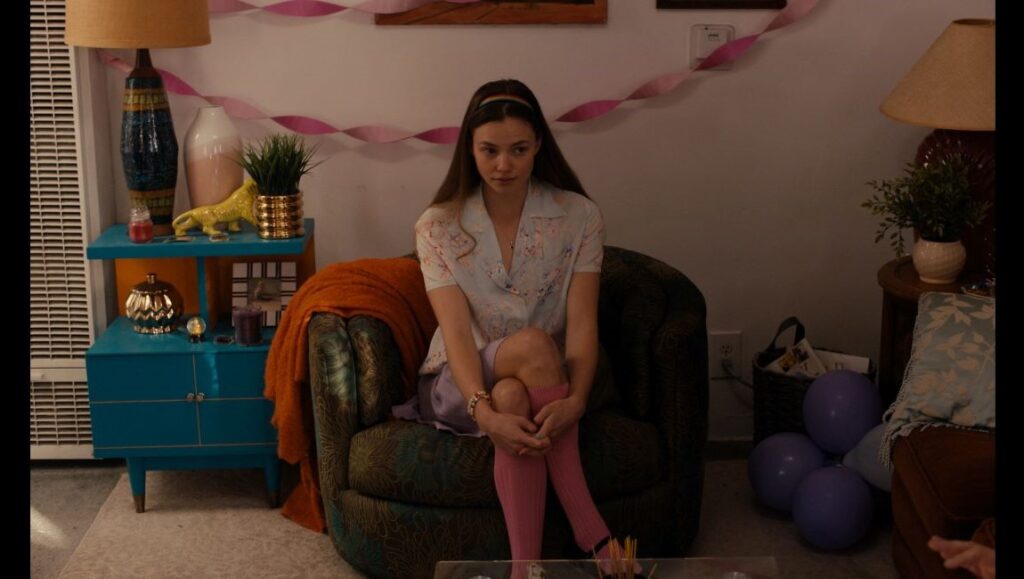Sharp Stick is a more specific work than much of what Denham has produced in the last decade, but it’s hindered by an awkward, shaggy structure and puts on display some of her lesser writing tendencies.
Though she’s been away from the film festival circuit for 11 years at this point, there’s no doubt that the career path Lena Dunham charted — from SXSW film premiere to HBO series deal in less than a year — inadvertently set off a dramatic reconsideration of the function of North American fests. The Dunham template quickly became the ideal for many young, American independent filmmakers, and festivals readily accommodated, focusing programs towards developing talent with pay cable and streaming TV in mind (a philosophy promoted rather actively by the Duplass Brothers). It’s an understandable safeplay in a culture that doesn’t care about movies much anymore, but one that has basically gutted the American independent film scene of any formal style, prioritizing persona and dialogue-centric screenwriting above all. Which is something of a shame, as Dunham’s 2010 feature Tiny Furniture, while surely divisive from a humor perspective, is at least quite obviously a film, crafted with the medium specifically in mind. That project had a cinematic conciseness to complement its creator’s sharp voice, something that her monumental follow-up series Girls generally strived for, but usually lost sight of while pursuing narrative tangent. And so, Dunham’s return to filmmaking (and Sundance debut) was always going to be a loaded text in several ways, but at least her return to cinema brings with it a vision committed to it’s particularities.
Sharp Stick, the third feature written, directed by, and starring Dunham (although in more of a supporting turn this time around), is indeed a more specific work than much of what has come out of Tiny Furniture’s wake, yet it’s hindered by an awkward, shaggy structure echoing some of her lesser writing tendencies from Girls. Initially aiming to disorient, Sharp Stick opens on Taylour Paige in tight close up, capturing her as she twerks and dances for TikTok, a small, meek white girl filming her from the corner of the room. It’s a mischievous, near trollish opening for a director whose work has been so closely affiliated with whiteness (and whose attempts to subvert this perception have never gone off), but curiously, it doesn’t really build into a throughline, its strange tension dissipating once Dunham’s script begins to fill in context. Not such a bad thing in this case, but this becomes something of a recurrence with Sharp Stick, a rather unslick bit of screenwriting that, while heartfelt, gets away from its author with some frequency. We soon learn that Paige (playing Treina) and the girl filming her are sisters and that the “girl” is in fact a 26-year-old woman by the name of Sarah Jo (Kristine Froseth), the both of them living together with their lapsed socialite mother (a perpetually stoned Jennifer Jason Leigh). Totally guileless and childlike, Sarah Jo’s life primarily revolves around her family and her job as an au pair for a miserable millennial yuppie couple (Dunham and Jon Bernthal, the highlights of the film) until she quite suddenly and uncharacteristically begins sexually purusing the husband. From there, Sarah Jo embarks on a journey of sexual self-discovery after years of repression born from severe medical trauma, but Sharp Stick’s narrative flows in strange ways, ultimately moving far past the confines of the Bernthal/Dunham household and venturing out into a porn-fueled cosmic odyssey. As previously suggested, these plot leaps are more ambitious than elegant, but Sharp Stick’s cast does their best to keep up, and some of the grander moments are brought to life convincingly by former Josephine Decker DP Ashley Connor’s camera. As for Sarah Jo, Dunham’s protagonist (obviously a little bit her) often confounds as both a triumphantly honest figure and something of a bizarre sociopath, but of course, this is this director’s favored territory. And while Sharp Stick doesn’t offer it’s cleanest realization, it certainly manages to distinguish itself from much of what it’s up against.
Originally published as part of Sundance Film Festival 2022 — Dispatch 2.


Comments are closed.